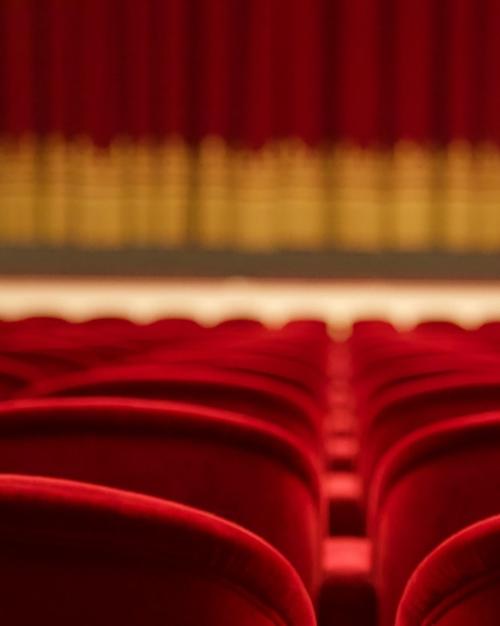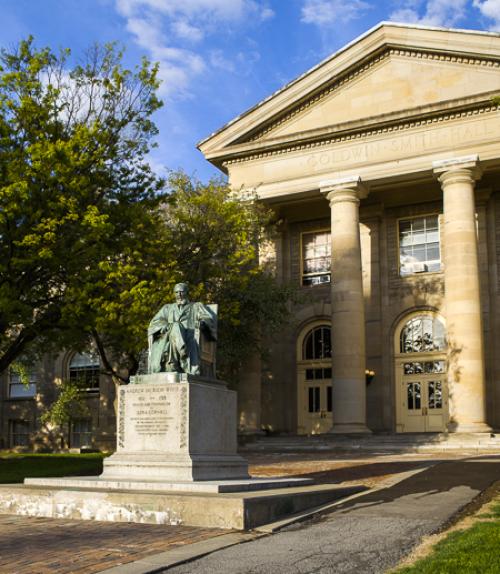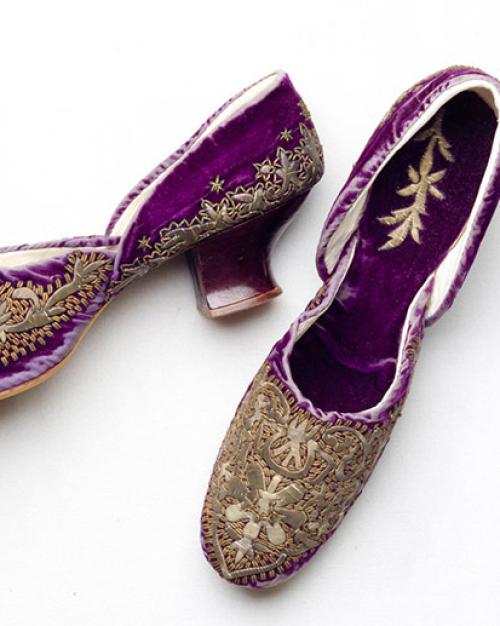Some hidden Cornell treasures soon will be available to scholars around the world, thanks to the Cornell University Library and the College of Arts and Sciences’ Grants Program for Digital Collections, which this year awarded four grants.
One such treasure is the Cornell Costume and Textile Collection, which includes more than 10,000 items of apparel, flat textiles and accessories dating from the late 18th century. The collection is important because textiles are studied from many different disciplinary perspectives, including materials science, chemistry, social sciences, cultural studies, anthropology, art and design, say digitization project leads Judith Byfield, associate professor of history; Denise Green, assistant professor of fiber science and apparel design; and Jolene Rickard, associate professor of history of art and visual studies and director of the American Indian Program.
A digital repository for the Sterrett Photographs collection, which documents major archaeological monuments in present-day Greece, Turkey, Cyprus, Syria and Iraq, is another of this year’s grantees. The collection includes more than 50 photos of Palmyra taken by John Henry Haynes in 1885, all but a very few unpublished. Because of the ongoing demolition of archaeological heritage in the regions covered by the Sterrett Photographs, project lead Benjamin Anderson, assistant professor of history of art and visual studies, anticipates scholarly attention for this collection to increase. The collection also serves as an important resource to train archaeology and architectural history students how to work with historical photographs as primary source material.
Benjamin Piekut, associate professor of music, will lead a project to digitize the Lindsay Cooper Archive, currently housed in a London storage locker and inaccessible to researchers. The project is a partnership between Cornell and the University of the Arts London to make Cooper’s scores and archival recordings available. According to Piekut, archival resources for Cooper’s avant-garde music are rare, making a digital archive of this collection important – especially given the “real paucity” of women’s stories in the history of experimental and improvised music.
The fourth project will digitize the full content of “On Our Backs,” a historically important publication used by students and researchers in the visual, political, historical, and gender and sexuality fields, says project lead Kate McCullough, associate professor of English and feminist, gender and sexuality studies. The collection includes photography, artworks, essays, advertising and nonfiction.
“These initiatives will expand our digital primary material collections for research and teaching and will also contribute to the burgeoning field of scholarship in the digital humanities through the use of innovative digital methodologies,” says Oya Rieger, associate university librarian for scholarly resources and preservation services. With classics professor Eric Rebillard, she co-chairs the Arts and Sciences Visual Resources Advisory Group, which administers the grants. She also oversees Cornell Library’s Digital Consulting and Production Services, the group that will produce the digital collections.
This article also appeared in the Cornell Chronicle.




